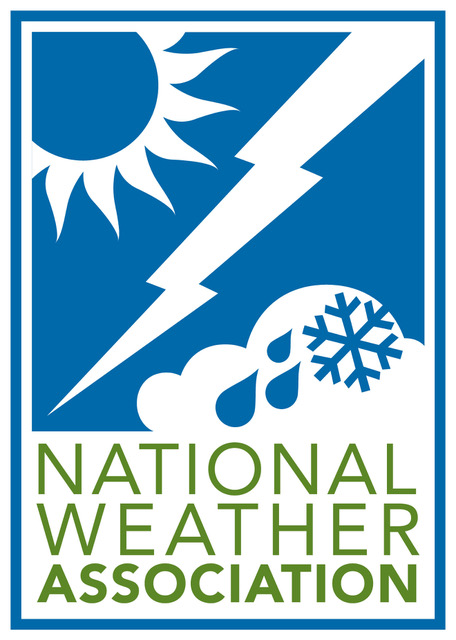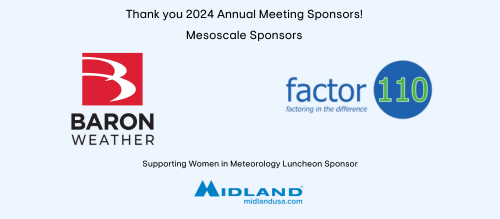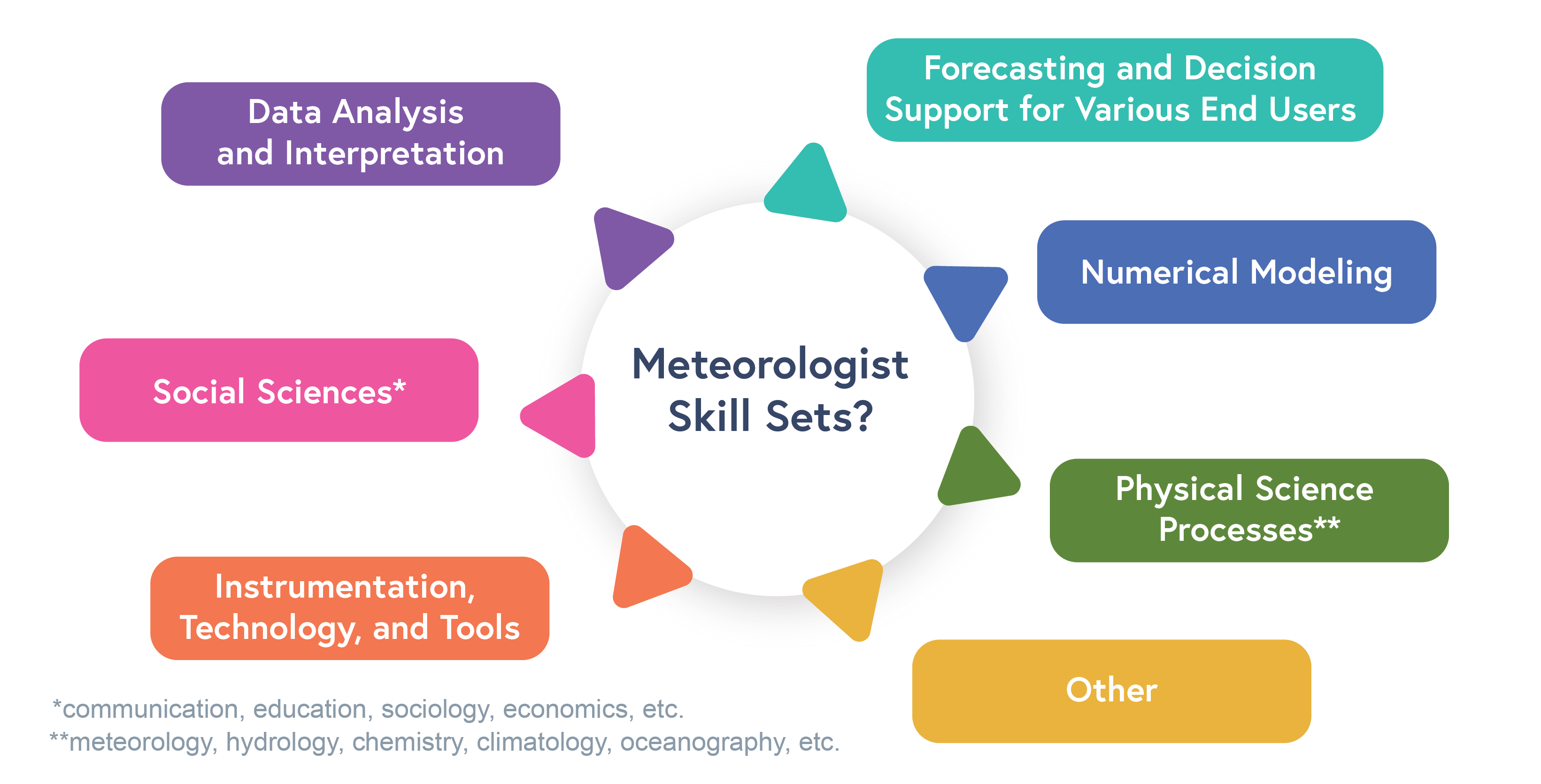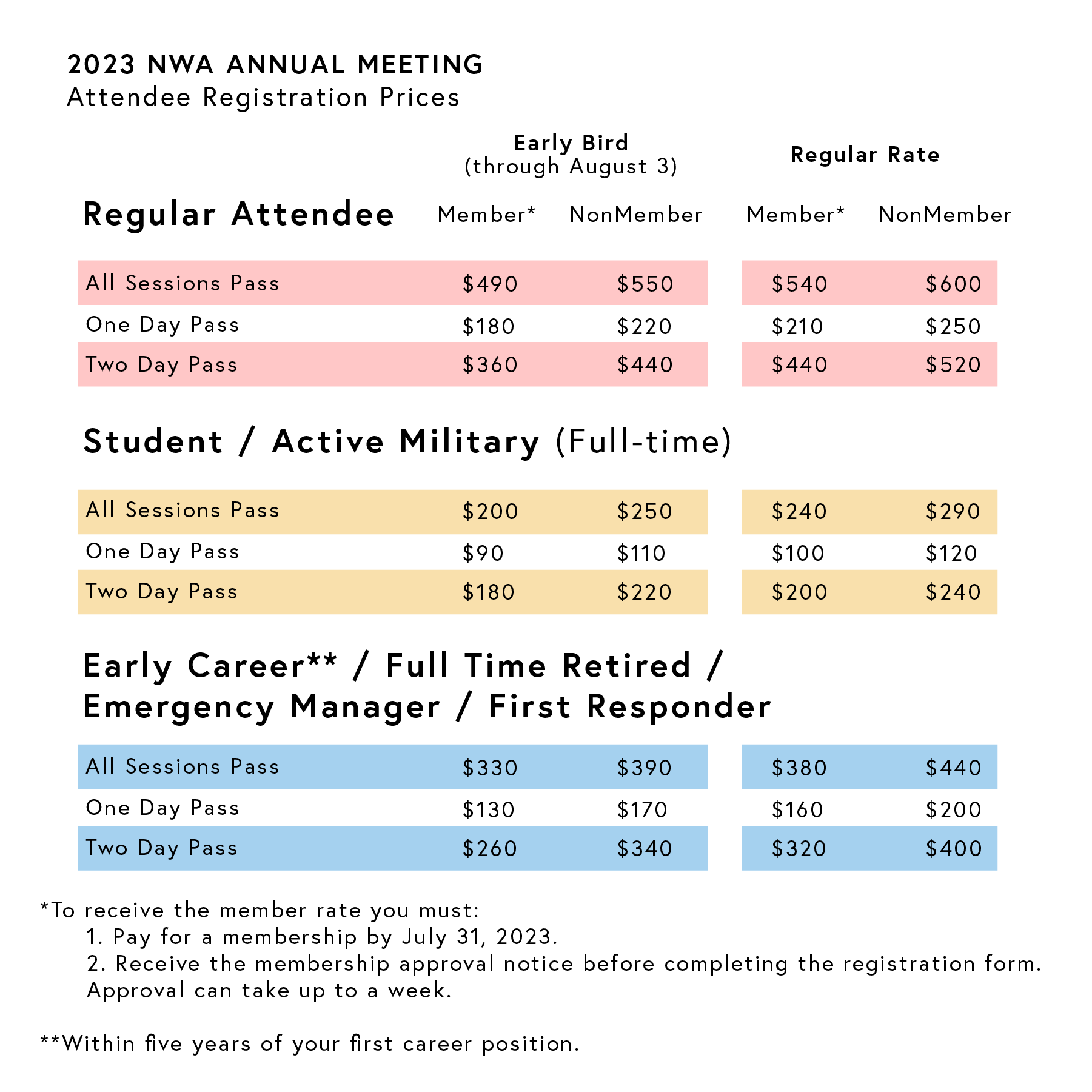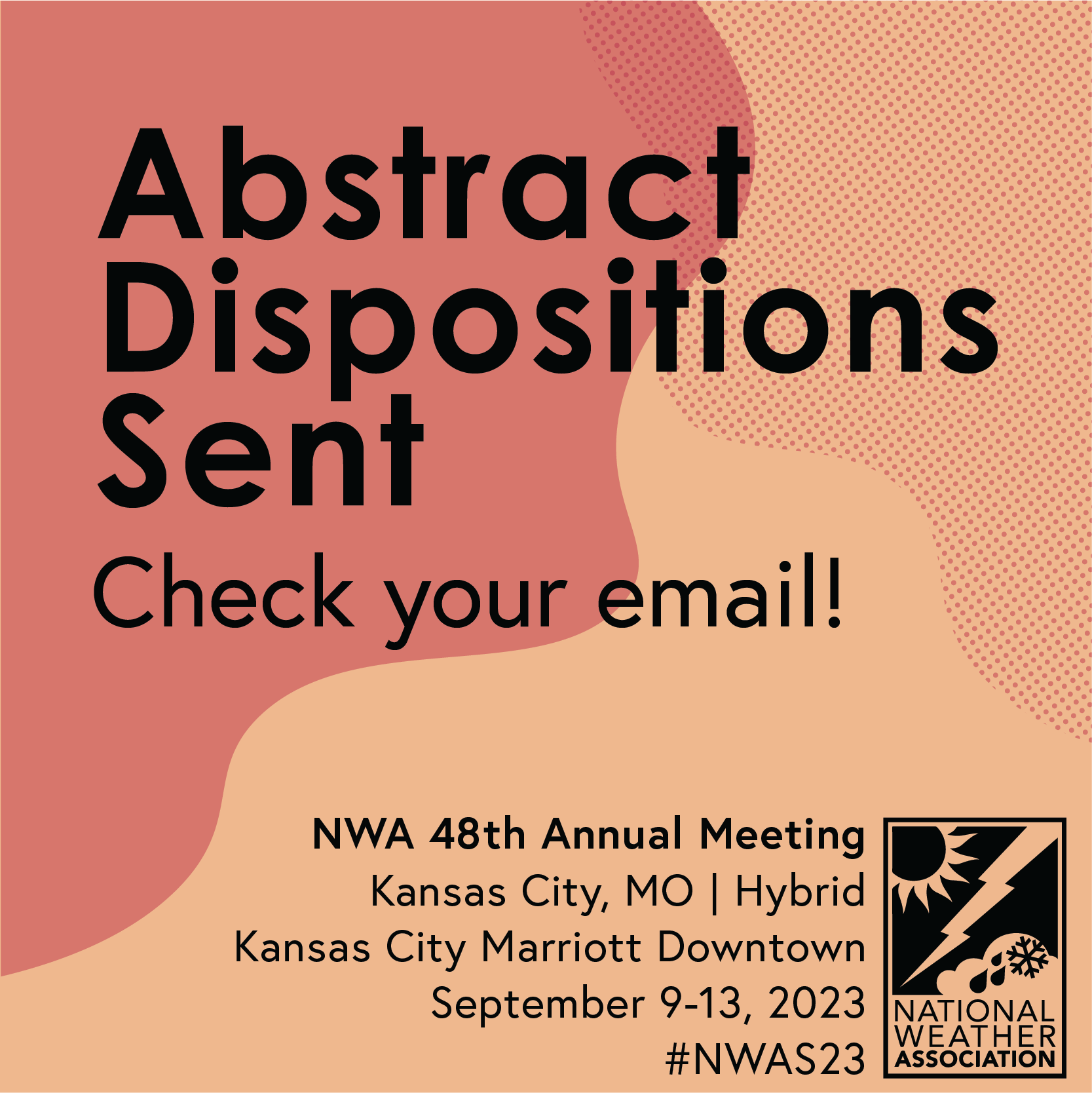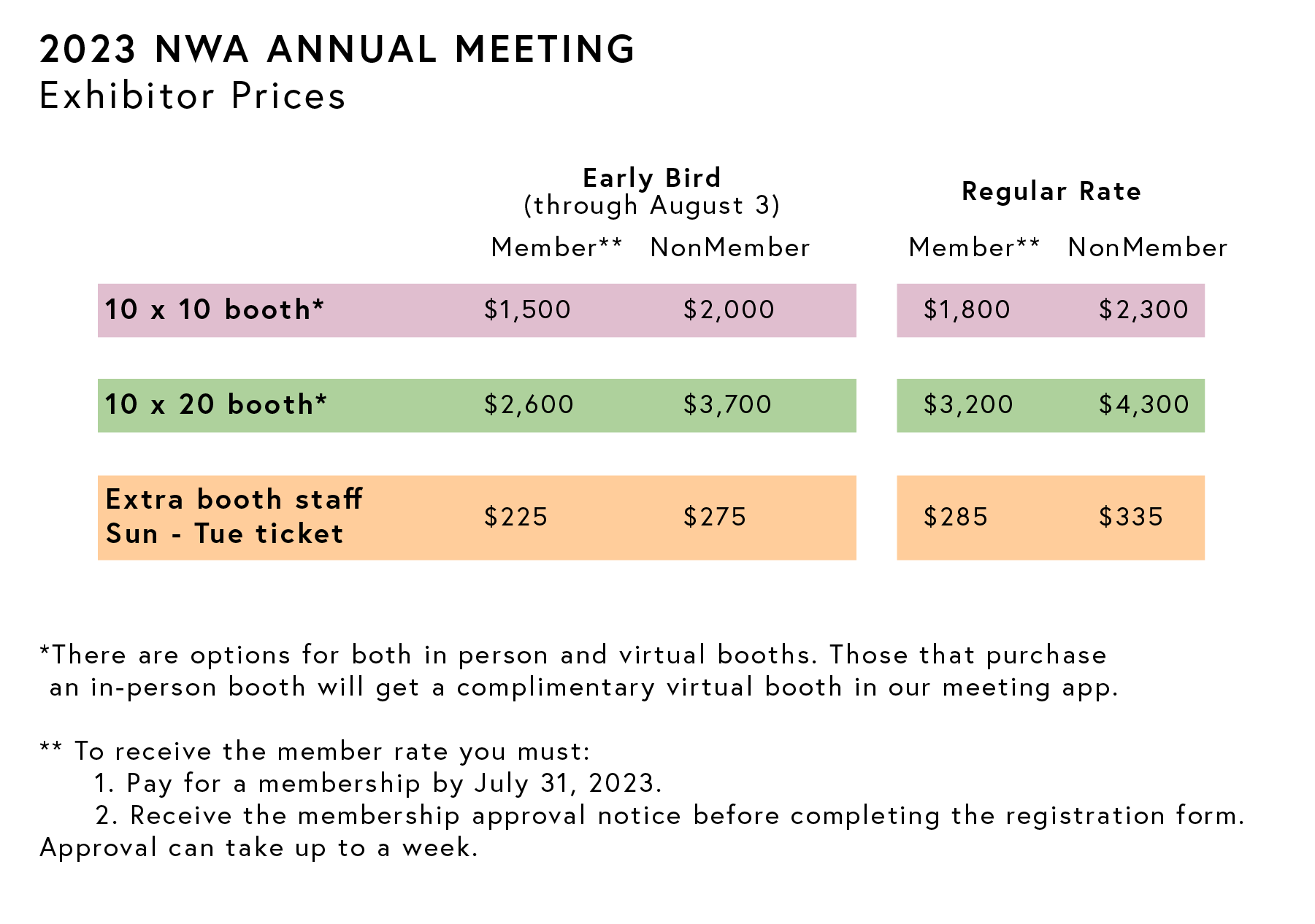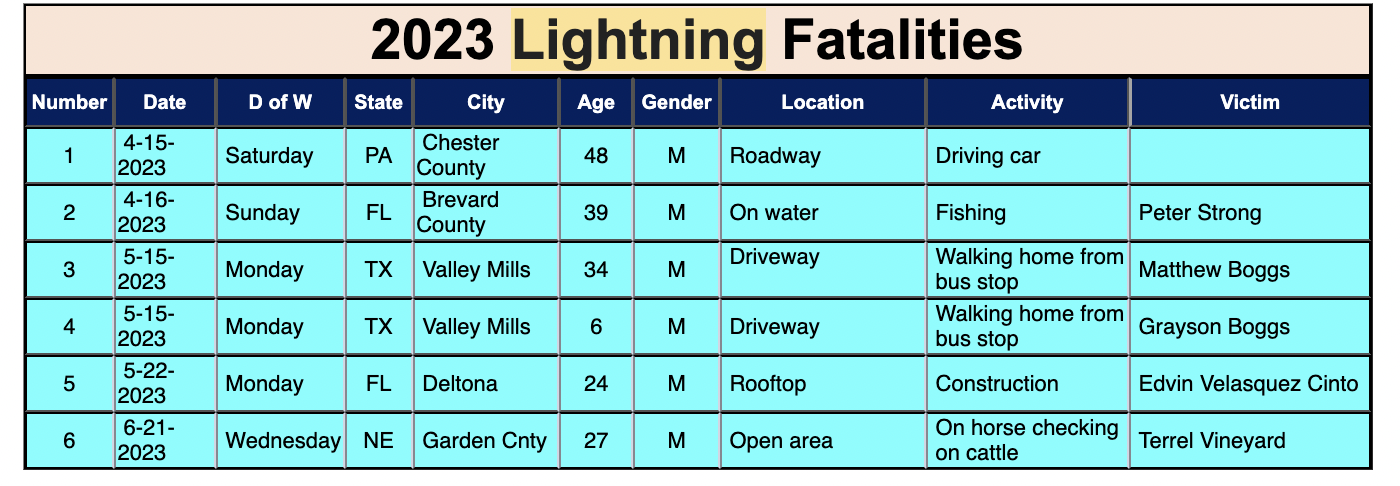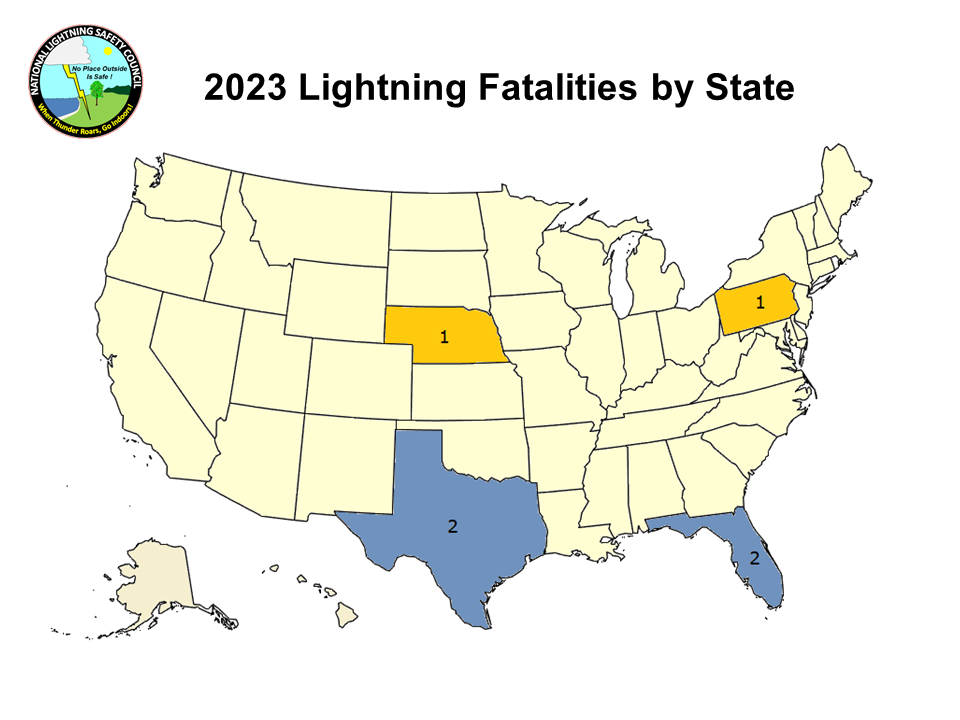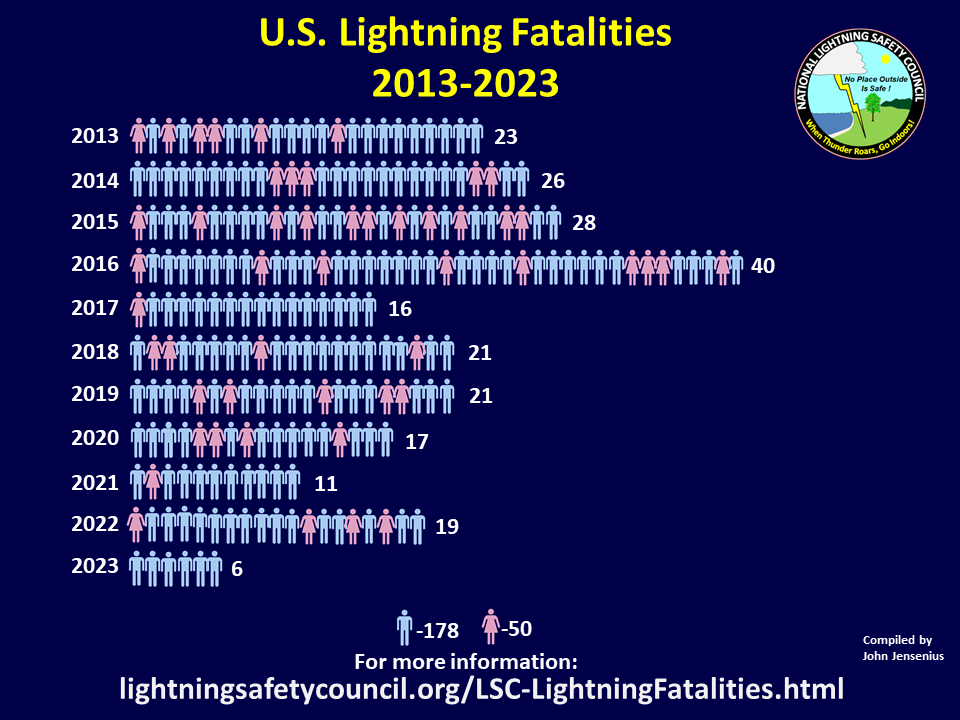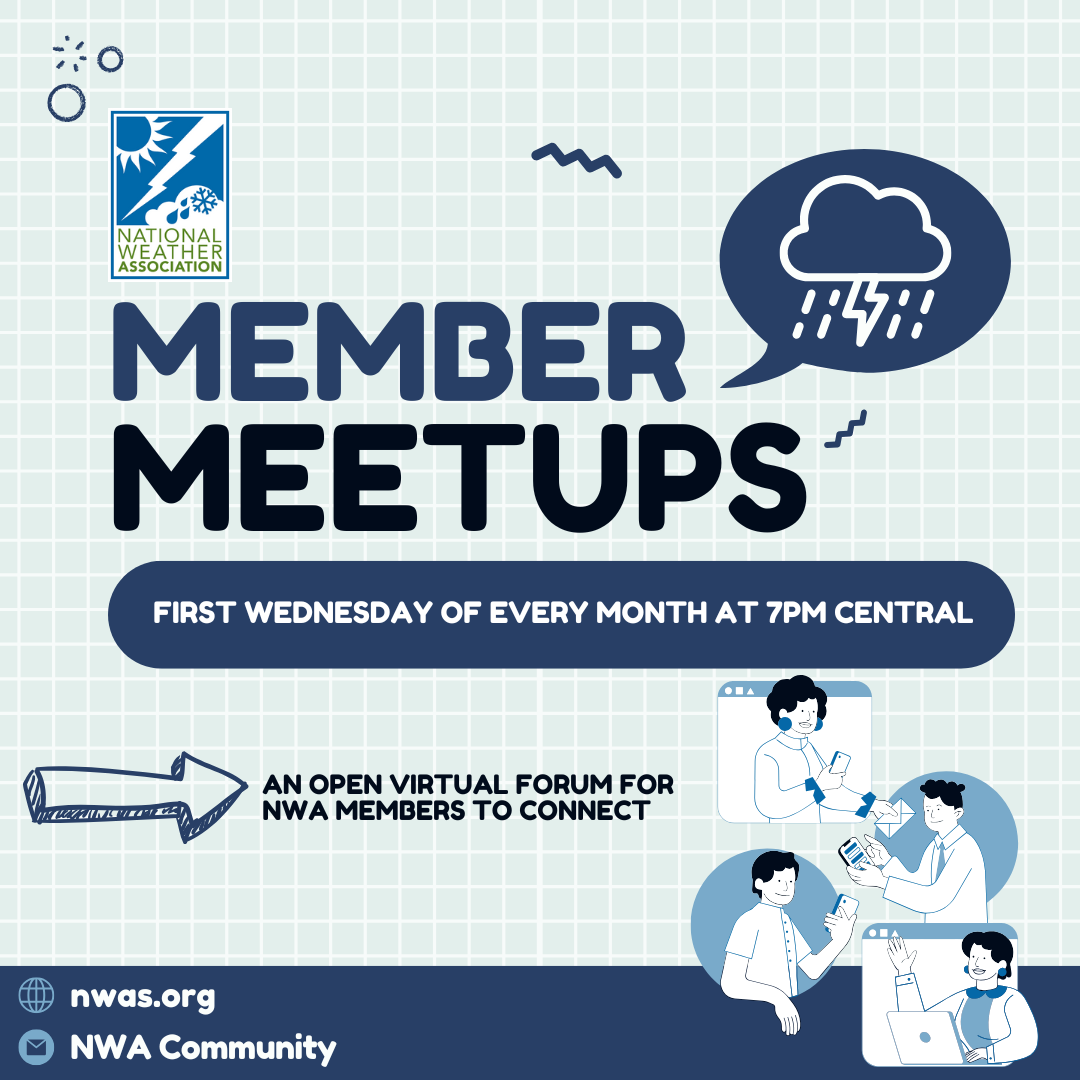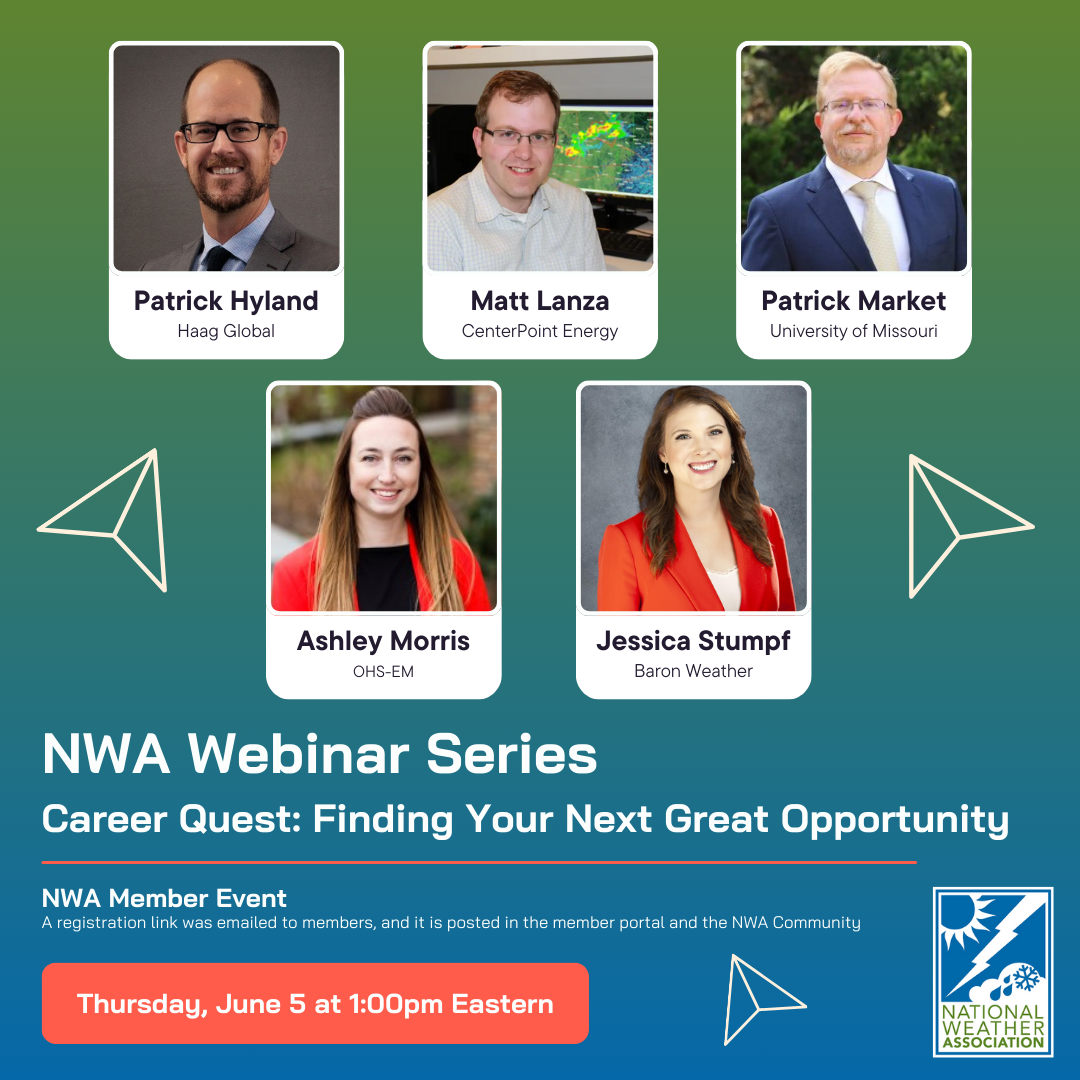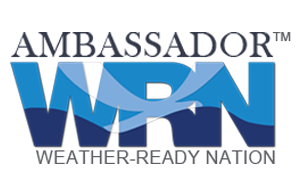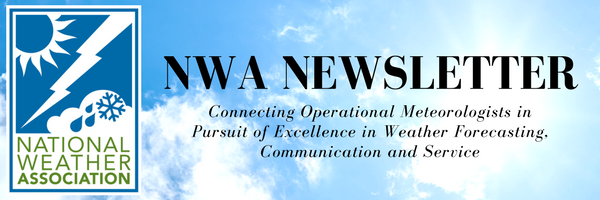 What's in this newsletter:
President's Message What does it mean to be a meteorologist? This is a question I’ve been mulling over a lot the past 10 years or so both because of my changing roles in the weather community and because of the evolving nature of our community itself. So I present to you a thought — a conversation starter, if you will. And I ask for YOUR thoughts on this, too. Read below and either join me in a chat on Community or send an email to me at [email protected] with your thoughts (Subject line: RE — Meteorologist Degree Requirements). Bottom Line Up Front: My two main questions are:
Diving into the first question above — What does it mean to be a meteorologist? For much of the history of our profession, the mathematical and physical science of forecasting has been our intense focus. The technical mindset has brought the state of the science to where it is today — forecasting with significant accuracy up to around a week in the future, skillfully anticipating the tracks of major hurricanes and winter storms, and highlighting the expected risks for droughts, floods, and temperature extremes on even longer timescales. And then we’ve got the infamous quote by Allan Murphy (1993): “Forecasts possess no intrinsic value. They acquire value through their ability to influence the decisions made by users of the forecasts.”
The 2000s have seen the boom in the connections between meteorological and social sciences, focusing attention on the essential pieces of the forecast process related to communication, understanding, and decision making based on our advanced technical forecasts. We are more embedded with end-users of our products — with emergency management, the aviation sector, the agriculture sector, and more. With the increasing concerns over climate impacts and mitigation, we are getting asked more questions about city planning and civil engineering. And there are many more that I’m not even covering here. But if you look at the qualifications for the meteorologist job series (1340) in the government sector, none of that change in the field is apparent. The last time the 1340 Qualifications were updated was during the ‘Modernization’ era (1991-1998) and focused on an increase in technical skills and math rigor within the degree requirements. That was great and needed for the era that also saw the broad deployment of the WSR-88D network, AWIPS, new satellites and supercomputers to support the expanded role of forecast services across the US. But let’s do the math. This means the government hasn’t updated what is considered the ‘requirements’ for our field in 25 years. That’s as old as the first MP3 player. Or the iMac. The movie ‘A Bug’s Life.’ The International Space Station. Or Shawn Mendes. As I understand things, the 1340 Qualifications are the common baseline most academic programs teach to. That means it has the biggest single impact on degree program design and what students will come into the workforce having learned. And I think MOST folks don’t take issue with the 24 semester hours of meteorology curriculum or the physics requirements. But most arguments over the past 10 years or so seem to center around 2 things:
Often, academic arguments are made to keep the differential equations requirement because folks who would go into research need the background for modeling. And there seems to be some angst that without all the complex calculus, we are diluting the science. But my questions for the operational community (which is the NWA focus) are:
Maybe this adds more complication for academic programs, but I’ll also throw out there that maybe part of the solution is that not every meteorology degree needs to look the same. The education field has separate terminal degrees to differentiate between a more academic, research focused PhD and a more practitioner-focused EdD. The same goes for a PhD in business vs. a practitioner’s DBA, and a PhD in Psychology vs. a practitioner’s PsyD. Is it possible that meteorology could learn a lesson from other fields and start more practically differentiating between practitioner degree paths and academic or more research focused paths? So for my second main question — Is this a discussion that NWA, as a whole, should be contributing more to? When I took a course on Career & Technical Education as part of a M.Ed. program several years ago, one big thing hit home to me. The relationship between industry and technical schools is tightly knit because schools want their students to be ready for the job market the day they graduate — and industry regularly updates the schools on what those needs are. It struck me as odd that meteorology doesn’t seem to work the same way. While the AMS issues a statement on their perspective of degree requirements periodically, the NWA never has. The NWA mission is more focused on operational perspectives so would we have a different opinion that needs a clear voice, as well? If the answer is yes, what’s next? NWA could host a forum for discussing what could be included in a statement from the NWA, welcoming all members to participate and provide input. That could be a virtual event and/or in person at a future annual meeting. If a statement is needed, a team would need to be assembled to develop a draft for member review and approval by the Board of Directors. So, it would likely take a bit of time. I look forward to hearing your thoughts to see if this is worth discussing further. So please join me on Community or send me an email. If we get a lot of input, I’ll be sure to report back in a future newsletter article! We invite you to attend the 2023 Annual Meeting, in person or virtually, September 9-13 in Kansas City, Missouri.
Student Session: Saturday, September 9 Register today and pay later.
The hotel block closes August 18 or when the block is full. Please stay at the Marriott Kansas City Downtown to help us keep overall meeting costs lower. See hotel information below. Showcase your business in the Exhibit Hall and in the meeting app. If you know a business that could benefit from exhibiting at the meeting, please share this information with them.
Sponsorships Available: Promote Your Business While Supporting the NWA!
Connect with those working in all aspects of operational meteorology through a 2023 NWA Annual Meeting Sponsorship. The Sponsorship Prospectus contains information about our reach at the Annual Meeting and beyond, and all the opportunities to sponsor at the 2023 Hybrid Meeting. Contact us at [email protected] or fill out the Sponsorship form if you are interested. 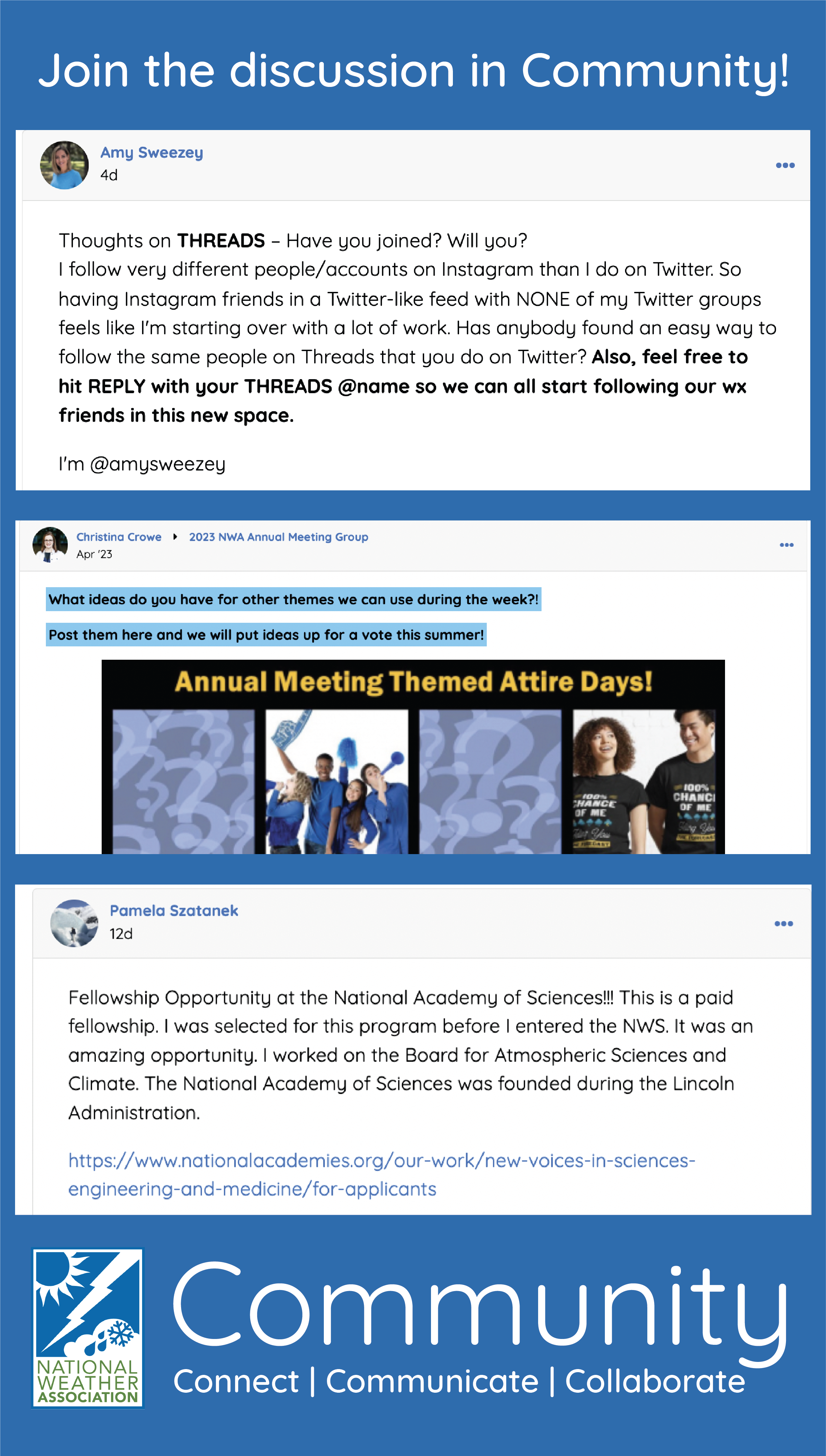 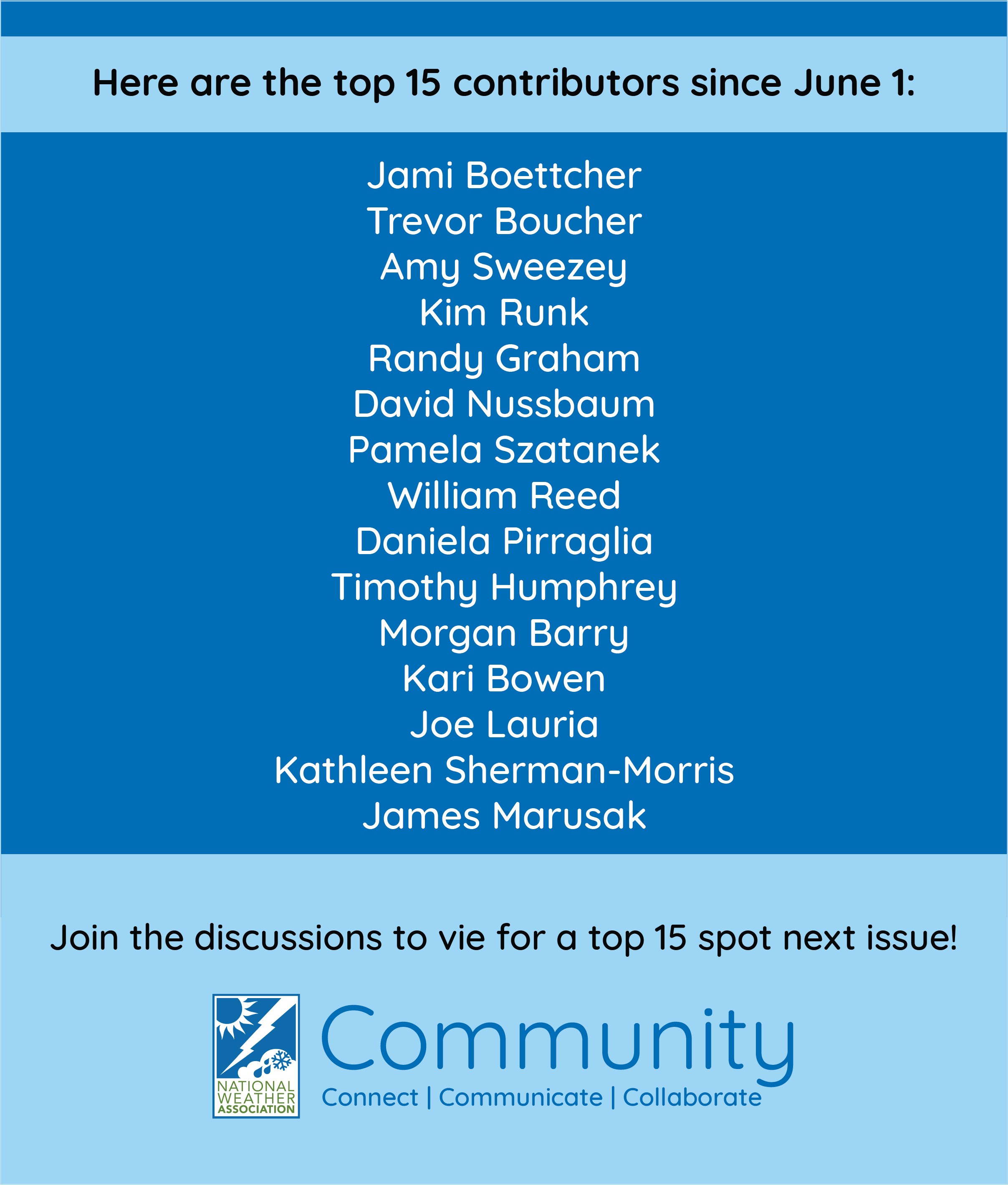 Haven't joined yet? Here's how:
NWA Diversity Committee – Promoting Diversity Across the Weather Enterprise As we continue to chart a course through 2023, we are always looking to the future and the type of organization we want to have. We want an organization that supports and cultivates a diverse population of weather professionals, we want to ensure equity and inclusion in our activities and pursuits, and most importantly, we want to create sustained processes of reflection and feedback so we can continue to make this organization the best it can be for all individuals. This is the basis of Goal 4 of the NWA Strategic Plan. Your NWA Board of Directors have outlined in detail objectives that go after various Diversity, Equity, and Inclusion (DEI) elements that will work to strengthen the organization for years to come. Part of this is the re-formation of the Diversity Committee. This committee is made up of NWA members that are champions of DEI and will help to ensure the objectives set forth in Goal 4 are realized. Part of this effort, and that of the committee, will be to boost outreach to various other science-based DEI organizations, celebrate and observe cultural awareness months that help to celebrate our diverse population at the same time, creating spaces for learning about various DEI topics and planning meetups throughout the year, and doing various barrier analysis and demographic studies to ensure that there are pathways into the NWA and within the NWA for anyone that is interested. Watch for a Diversity Group to be added to the NWA Community. It will contain more information about the DEI goals of NWA and the events we have throughout the year! For questions or comments pertaining to this article, please reach out to Kari Bowen at [email protected] or Laurel McCoy at [email protected] 2023 Lightning Fatalities Update From John Jensenius: Unfortunately, we received a report of a lightning fatality from June 21st. A 27-year-old man was struck and killed by lightning in Garden County, Nebraska. He was on horseback in an open area checking on cattle when he was struck. This is the 6th U.S. lightning fatality this year and the 1st in Nebraska. Based on the past 10 years, the U.S. averages 6 lightning fatalities through June 25th. All 6 fatalities this year have been male. This is only the second known lightning fatality in Nebraska since 2006. The first fatality occurred over 17 years ago on April 11, 2006, when a 14-yr-old girl was struck by lightning while playing soccer. Ranching and Farming are two of the deadliest work-related activities with respect to lightning and have contributed to a combined total of 22 lightning fatalities since 2006. Ranching has now led to 8 of those deaths. Table and demographics below. Map and pictograph attached. John Jensenius The following data is through June 26.
What sparked your interest in meteorology? I grew up a military brat. I’ve lived all over the globe and the vast amounts of different weather opened my eyes young. I had a yearning to understand what caused it. What is the most memorable weather event you have covered? The most memorable event is Hurricane Florence in Myrtle Beach. On top of working nearly 84 hours straight, I anchored 2 hours straight of tornado warnings solo during the event. What do you love to do in your free time? I love to travel during my free time. I’m always looking to explore new places both domestically and internationally. I’m also a HUGE hockey fan and love going to hockey games! Do you have any unusual/hidden talents? I don’t have a hidden talent but I cannot whistle to save my life. It’s pitiful. People make fun of me for my poor attempt at whistling haha. What do you love most about being a member of the NWA? I love the connection of the NWA. Being able to connect and learn from mentors within the organization. Being able to meet other likeminded folk that love the weather and being able to understand everything about it. Connect with Zach: September 2023
September 9-13 NWA Annual Meeting November 2023 Have you checked out our job page recently? We update the job postings as they arrive, and they've been arriving more frequently. Check out the newest job postings or submit a job posting. National Weather Association | 3100 Monitor Ave, Suite 123 | Norman OK 73072 | 405.701.5167 Publisher: Janice Bunting, NWA CEO Submit newsletter items to [email protected] |
